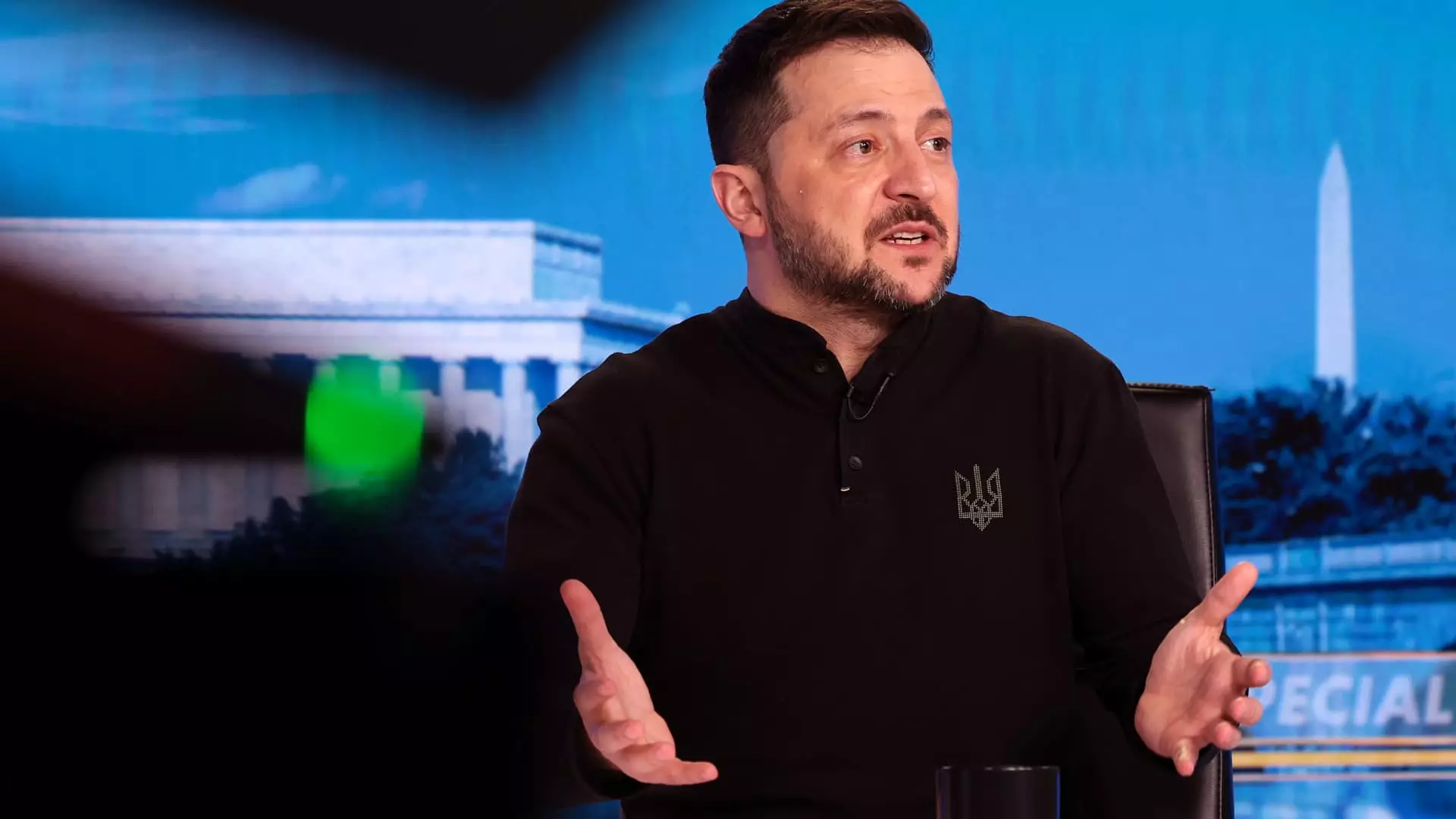In a recent showdown at the White House, Ukrainian President Volodymyr Zelenskyy found himself at the heart of a contentious debate with President Donald Trump and Vice President JD Vance regarding Ukraine’s struggle against invasive Russian forces. The highly publicized exchange has created ripples both domestically and internationally, raising questions about the fragile dynamics of diplomacy amidst conflict. After the clash, Zelenskyy expressed his reluctance to apologize for his remarks during the encounter, stating that such spats are detrimental for both nations. The confrontation has spotlighted the critical intersection of geopolitics, public perception, and leadership accountability.
Zelenskyy firmly defended the necessity of U.S. aid for Ukraine, reiterating that without continued support, “it will be difficult for us” to withstand Russian aggression. This comment underscores the reality that Ukraine, in its battle for sovereignty, is heavily reliant on international support, particularly from the United States. By emphasizing the vital role the U.S. plays in saving Ukrainian lives, Zelenskyy pragmatically advocates for sustained military and financial assistance, highlighting the moral obligation that accompanies Ukraine’s ongoing conflict.
The roots of the disagreement stem from the differing perspectives on diplomacy between Zelenskyy and Vice President Vance. While Vance suggested that dialogue could pave a way to peace with Russia, Zelenskyy challenged this notion by highlighting the historical pattern of broken promises from Russian President Vladimir Putin. Claiming that peace through negotiation is futile when the adversary has a track record of violence, Zelenskyy’s stance reflects a sobering understanding of the conflict’s harsh realities. This dialogue brings to light the underlying tension not only between Ukraine and Russia but also within the ranks of U.S. policymakers regarding how best to approach the crisis.
By calling into question the efficacy of diplomacy with a regime notorious for its betrayal, Zelenskyy illustrates a divergence in strategic thought that complicates U.S. support. His remarks resonate with a broader sentiment among many in Ukraine, who have suffered greatly at the hands of invading forces. Thus, the friction present within the Oval Office encounter is emblematic of the broader challenge faced by allies: navigating a path to peace while ensuring the respect and safety of Ukraine’s sovereignty.
The aftermath of the White House encounter saw Trump’s remarks draw sharp criticism, not only from Zelenskyy but also from European and NATO leaders. Trump’s assertion that the Ukrainian president had “overplayed his hand” seemed to fracture the already tenuous relationship at a critical junction in Ukraine’s defense efforts. The concern raised by European Union leaders, emphasizing the need for a unified stance on supporting Ukraine, underscores the growing recognition that the responsibility to aid Ukraine may fall increasingly on Europe, particularly if U.S. support wavers.
Leaders like European Union High Representative Kaja Kallas highlighted the importance of Europe stepping up in the face of potential U.S. retrenchment. The sentiment reflects an evolving landscape where European nations may be forced to re-evaluate their roles in global diplomacy and military alliances, particularly in relation to Russia.
Despite the tensions, Zelenskyy maintained a hopeful tone regarding the potential for salvaging his relationship with Trump, stating, “Yes, of course,” when asked if mending ties was possible. This reflects an understanding that diplomatic relations can often weather storms, provided that both parties are willing to engage sincerely and constructively. Nevertheless, the path ahead is fraught with challenges, as mutual respect and acknowledgment are paramount to rebuilding trust.
In his televised interview, Zelenskyy expressed remorse that the debate had been aired publicly. Acknowledging the complexities of diplomacy, he reiterated the importance of honesty and transparency to facilitate further collaboration. However, the discourse surrounding how the United States approaches its foreign policy in Ukraine remains critical, as any shift in support dynamics could have profound implications for the ongoing conflict.
The recent clash between Zelenskyy and U.S. officials is a microcosm of the challenges that face democratic allies in the pursuit of peace and mutual support. As the situation evolves, understanding the intricacies of diplomacy, the historical context of the conflict, and the necessity for unwavering support will be vital in preserving the integrity and sovereignty of Ukraine amidst ongoing aggression.

